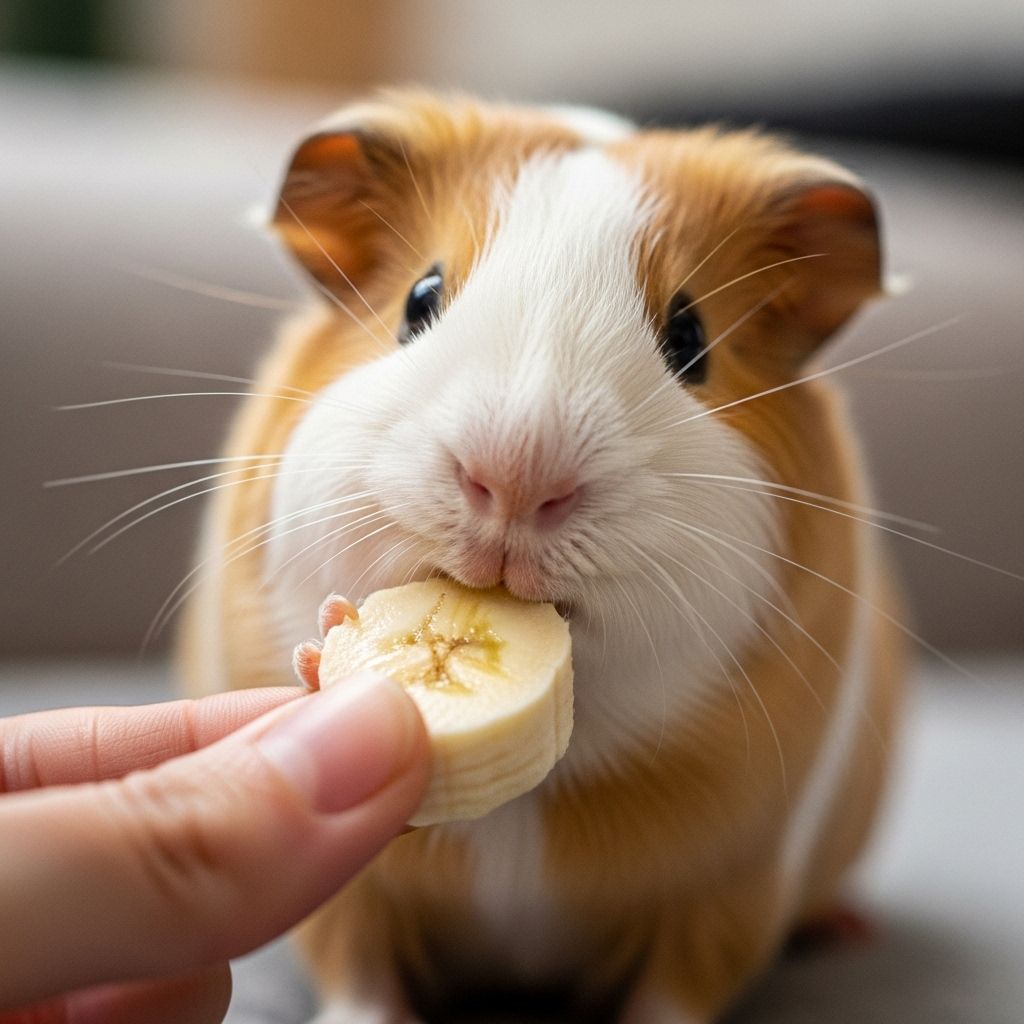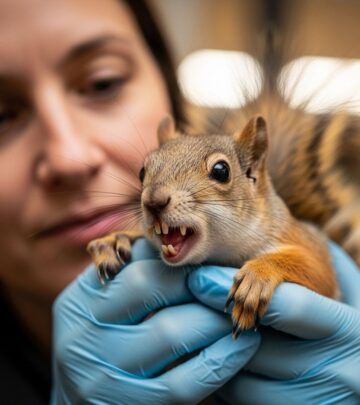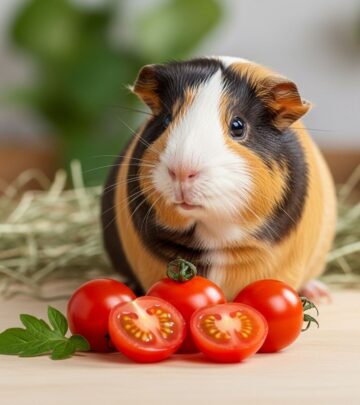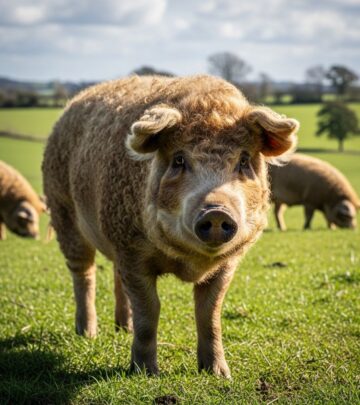Can Guinea Pigs Eat Bananas? A Complete Guide to Banana Treats for Piggies
Small slices of fruit can boost your pet’s vitamin intake without overloading its system.

Can Guinea Pigs Eat Bananas?
Bananas are a beloved fruit in many households—sweet, creamy, and packed with nutrients. But if you share your space with guinea pigs, you might wonder, can guinea pigs eat bananas? The answer is yes: guinea pigs can safely enjoy bananas, but only in moderation.
Are Bananas Good for Guinea Pigs?
Bananas can be a healthy treat for guinea pigs when fed correctly. Here’s why this fruit can be valuable to your piggy’s snack roster:
- Potassium: Essential for nerve conduction, muscle function, fluid balance, and healthy blood flow. Bananas offer about 3.6mg of potassium per gram.
- Vitamin C: Critical for immune function, healthy skin and joints, and prevention of scurvy (a disease guinea pigs are especially prone to since they cannot produce their own vitamin C).
- Fiber: Supports healthy digestion and gut motility.
- Antioxidants: Support cellular health and help protect against disease.
Important note: The majority of your guinea pig’s diet should consist of high-quality hay (like Timothy hay) and fresh grasses. Fruits, including bananas, are only suitable as occasional snacks, not diet staples.
How Much Banana Can Guinea Pigs Eat?
The high sugar content in bananas means moderation is crucial to avoid health risks like diabetes, obesity, kidney stress, and digestive upset. Here’s what experts recommend:
- Feed a thin slice (about 1-2 teaspoons worth) of banana per guinea pig, no more than 1-2 times per week.
- Introduce banana slowly, especially if your guinea pig hasn’t tried it before. Watch for signs of digestive upset or allergy.
| Serving Size | Frequency | Safe for |
|---|---|---|
| Thin slice (1–2 tsp) | Once or twice a week | Healthy adult guinea pigs |
Tip: If your guinea pig has diabetes, obesity, or kidney issues, avoid banana and most fruits entirely.
Can Guinea Pigs Eat Banana Peels?
Yes, guinea pigs can eat banana peels in small amounts, but there are some important caveats:
- Choose organic, pesticide-free bananas for any peel feeding.
- Wash peels thoroughly to remove chemicals and dirt.
- Feed only a tiny piece of banana peel at a time, and watch for digestive changes.
Banana peels contain fiber and some vitamins, but can be tougher to chew and digest, so only occasional small pieces are advised.
Health Benefits of Bananas for Guinea Pigs
- Immune Support: Vitamin C in bananas helps keep guinea pigs healthy and fights scurvy.
- Electrolyte Regulation: Potassium supports vital organ function and prevents muscle cramps.
- Energy Boost: Natural sugars offer a quick source of energy—great during playtime or for a newly active piggy.
- Digestive Health: Fiber aids digestive regularity, though excess can cause loose stools if overfed.
Potential Risks of Feeding Bananas to Guinea Pigs
Despite their benefits, bananas pose certain hazards if not fed correctly:
- High Sugar: Too much sugar can cause obesity, diabetes, and digestive upset.
- Kidney Strain: Excess potassium may be harmful for guinea pigs with kidney issues.
- Digestive Issues: Overfeeding leads to diarrhea, bloating, or gas.
- Choking Hazard: Large pieces, especially peel, can cause choking.
Never feed any fruit to guinea pigs with known health problems (especially diabetes, obesity, or kidney disease) without consulting a vet.
Preparing Bananas for Your Guinea Pig
To safely introduce banana treats, follow these steps:
- Wash: Clean the fruit and peel thoroughly to remove pesticides and dirt.
- Peel: You can offer a small amount of banana with or without the peel, but limit the latter to organic sources.
- Slice Small: Cut banana into thin, manageable slices—roughly the size of your guinea pig’s toenail.
- Remove Uneaten Fruit: Discard any leftover banana after an hour to prevent spoilage and pests.
Pro tip: Try hand-feeding banana—many guinea pigs enjoy the sweet treat, and it can help earn their trust and build a bond!
Can Baby Guinea Pigs Eat Banana?
Baby guinea pigs (pups) have delicate, developing digestive systems and specific nutritional needs. It’s best to avoid feeding banana or other sugary fruits until they are older than 6 months. Stick to:
- High-quality hay and grass
- Pellets formulated for young guinea pigs
- Tiny, age-appropriate portions of vegetables (introduce very gradually)
Before adding any fruit, especially sweet options like banana, consult your veterinarian for guidance tailored to your growing piggy’s health.
Other Guinea Pig-Friendly Fruits
Bananas aren’t the only fruit your guinea pig can enjoy in moderation. Mix up your piggy’s diet with a rotating selection of the following guinea pig-safe fruits:
- Apple (remove seeds and core)
- Strawberry
- Blueberry
- Melon (cantaloupe, watermelon, honeydew)
- Pear (seedless)
- Kiwi
- Cherry (pitted)
- Squash and pumpkin
Always introduce new foods one at a time and watch your guinea pig for signs of intolerance or allergy.
Foods to Avoid: Dangerous and Toxic Treats
Not all fruits and vegetables are safe for guinea pigs. Never feed the following to your guinea pig:
- Chocolate or caffeinated foods
- Dairy products
- Citrus fruits (can upset tummies)
- Potato (and peels)
- Onion, garlic, chives
- Mushrooms
- Tomato leaves or vines (the fruit is fine in moderation)
- Avocado
- Iceberg lettuce (little nutritional value, can cause diarrhea)
- Buttercups, daffodils, poppies, tulips
- Seeds and most nuts (often toxic or pose choking risk)
- Fruit pits and stones
List: Quick Banana Feeding Dos and Don’ts
- Do offer small, occasional slices of banana as a treat.
- Do wash all fruit and peels thoroughly before serving.
- Do monitor your guinea pig’s weight and health.
- Don’t feed banana daily—limit to 1-2 times per week.
- Don’t feed banana to guinea pigs with diabetes, obesity, or kidney disease.
- Don’t leave uneaten banana in the cage (remove after 1 hour).
- Don’t use banana treats to replace hay, which should remain 85–90% of the diet.
Frequently Asked Questions (FAQs)
Is banana safe for all guinea pigs?
Banana is generally safe for healthy adult guinea pigs in moderation. Avoid if your pet is diabetic, obese, or has any kidney issues.
How often can guinea pigs eat banana?
Limit banana to 1–2 thin slices per week to prevent excess sugar intake and potential health issues.
Can guinea pigs eat dried banana chips?
No. Dried banana chips are high in sugar and often contain added oils or preservatives. Fresh banana is always preferable in small, infrequent portions.
What if my guinea pig eats too much banana?
Watch for signs of digestive distress such as diarrhea, bloating, or lethargy. Remove banana from the diet and consult a veterinarian if needed.
Can guinea pigs eat banana stems or leaves?
No. Only the banana fruit and, occasionally, a small, well-washed piece of peel are suitable. Stems and leaves are not recommended and may upset your pet’s digestion.
Summary: Bananas as a Treat—Not a Staple
Guinea pigs can eat bananas and banana peels safely as a rare treat. These fruits provide vitamins and minerals beneficial to your pet’s health, especially vitamin C and potassium, but high sugar content means they must be offered with caution. Introduce new foods like banana slowly, keep portions small, and always prioritize hay, fresh water, and guinea pig-approved veggies in the daily diet.
When in doubt, consult your veterinarian for personalized advice—and enjoy watching your piggy discover the sweet joy of a banana treat!
References
- https://articles.hepper.com/can-guinea-pigs-eat-bananas/
- https://www.guineadad.com/blogs/news/can-guinea-pigs-eat-bananas
- https://kavee.com/blogs/the-piggy-blog/safe-fruits-for-guinea-pigs
- https://www.burgesspetcare.com/blog/guinea-pigs/can-guinea-pigs-eat-bananas/
- https://www.youtube.com/watch?v=4-ypFT1PDrw
Read full bio of medha deb












